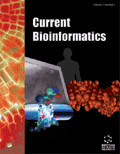
Current Bioinformatics
Scope & Guideline
Exploring Interdisciplinary Approaches to Biological Data
Introduction
Aims and Scopes
- Bioinformatics Algorithms and Models:
The journal publishes research on algorithms and computational models that analyze biological data, including machine learning, deep learning, and statistical methods. - Genomic and Proteomic Analyses:
A significant emphasis is placed on the analysis of genomic and proteomic data, with studies exploring gene expression, protein interactions, and molecular structures. - Disease Mechanisms and Therapeutics:
Research focusing on understanding disease mechanisms through bioinformatics approaches, including drug discovery, disease prediction, and therapeutic target identification. - Integration of Multi-Omics Data:
The journal highlights work that integrates various types of biological data (genomic, transcriptomic, proteomic) to provide a comprehensive understanding of biological processes. - Application of Artificial Intelligence and Machine Learning:
A core area of focus is the application of AI and machine learning techniques in bioinformatics, particularly for predictive modeling and pattern recognition in biological datasets.
Trending and Emerging
- Deep Learning Applications:
There is a marked increase in the use of deep learning techniques for various bioinformatics applications, including protein structure prediction, drug discovery, and genomic data analysis. - Microbiome Research:
Research focusing on the microbiome and its association with health and disease is gaining traction, highlighting the importance of microbial interactions in human health. - COVID-19 Related Studies:
The journal has published numerous articles related to COVID-19, including studies on virus genomics, vaccine development, and computational models for disease spread. - AI-Driven Drug Discovery:
An upward trend in research dedicated to AI-driven approaches for drug discovery and repurposing, showcasing the potential of computational methods to accelerate pharmaceutical development. - Network-Based Approaches:
Emerging interest in network-based methodologies for understanding biological systems, particularly in studying interactions among genes, proteins, and metabolites.
Declining or Waning
- Traditional Statistical Approaches:
With the rise of machine learning and AI, traditional statistical methods for data analysis have become less prominent, as researchers favor more advanced computational techniques. - Basic Sequence Alignment Techniques:
Fundamental sequence alignment methods are being overshadowed by more sophisticated and context-specific approaches, such as deep learning-based models that offer improved performance. - Single Omics Studies:
There is a noticeable decline in studies focusing solely on single omics data, as the trend shifts towards multi-omics integrations for a more holistic understanding of biological systems. - General Reviews without Novel Insights:
The journal has seen fewer publications of general reviews that do not provide new insights or methodologies, reflecting a preference for original research contributions.
Similar Journals

Quantitative Biology
Exploring the Intersection of Numbers and NatureQuantitative Biology is a prestigious journal published by WILEY, focusing on the interdisciplinary study of quantitative approaches in the biological sciences. With an ISSN of 2095-4689 and an E-ISSN of 2095-4697, this journal has established itself as a critical platform for researchers exploring complex biological systems through mathematical and computational methodologies. Operating out of China, Quantitative Biology significantly contributes to its field, holding a Q2 ranking in various categories, including Applied Mathematics and Biochemistry, Genetics and Molecular Biology, according to the latest Scopus rankings. These rankings reflect the journal's commitment to publishing high-quality research that employs advanced modeling and simulation techniques. The journal's impact is evident with its position in the 84th percentile for Applied Mathematics, indicating its relevance and growth in a competitive academic landscape. Although it does not currently operate under an Open Access model, the journal is pivotal for professionals and students alike, aiming to bridge the gap between mathematical theories and biological applications. Researchers are encouraged to submit their innovative findings and engage with the vibrant community dedicated to advancing the quantitative understanding of biological phenomena.

BIOCHEMICAL AND BIOPHYSICAL RESEARCH COMMUNICATIONS
Connecting researchers through groundbreaking discoveries.BIOCHEMICAL AND BIOPHYSICAL RESEARCH COMMUNICATIONS, published by Academic Press Inc Elsevier Science, stands as a leading periodical in the fields of biochemistry, biophysics, cell biology, and molecular biology. With an ISSN of 0006-291X and an E-ISSN of 1090-2104, this esteemed journal has been a pivotal platform for the dissemination of groundbreaking research since its inception in 1959, continuing to publish influential findings through at least 2024. It holds a commendable Q2 ranking in Biochemistry and Q1 status in Biophysics as of 2023, reflecting its high impact and relevance in the field, supported by its strong Scopus rankings—ranking #43 in Biophysics and maintaining a presence in the top quartiles of several related categories. Although it is not an open-access journal, it provides critical insights and essential data that cater to researchers, professionals, and students keen on advancing their understanding of complex biochemical and biophysical processes. Its significant contributions to the scientific community underscore the importance of this journal as a reference point for innovative research and collaborative discourse.
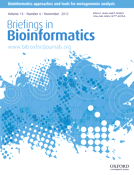
BRIEFINGS IN BIOINFORMATICS
Transforming Data into Discoveries in Life SciencesBRIEFINGS IN BIOINFORMATICS is a premier academic journal dedicated to the dynamic field of bioinformatics, published by Oxford University Press. With a prestigious standing reflected in its Q1 quartile rankings in both Information Systems and Molecular Biology, this journal serves as an essential resource for researchers, professionals, and students eager to explore the intersection of biology and computational sciences. The journal not only publishes high-impact research articles but also reviews and critical commentaries that push the boundaries of understanding in bioinformatics. As it converges its objectives towards fostering innovation and knowledge dissemination from 2000 to 2024, BRIEFINGS IN BIOINFORMATICS offers rich insights that remain pivotal to advancements in genomic studies, data integration, and computational tools. Its ranking in the top percentiles of Scopus—30th among 394 in Computer Science and 44th among 410 in Molecular Biology—underscores the journal's influential presence in the academic community. Engaging with the latest research and trends, this journal is integral for anyone invested in the future of life sciences and data analytics.

Journal of Integrative Bioinformatics
Exploring Integrative Methodologies in Medicine and BeyondJournal of Integrative Bioinformatics, published by WALTER DE GRUYTER GMBH, is a leading open-access journal that has been at the forefront of the field since its inception in 2004. With an E-ISSN of 1613-4516, it serves as a crucial platform for researchers engaged in the interdisciplinary study of bioinformatics, blending insights from biology, computer science, and mathematics. Based in Germany, the journal is recognized for its impact in the realm of general medicine, boasting a Scopus rank of #172 out of 636 and placing in the 73rd percentile of its category. The journal continuously strives to disseminate high-quality research contributions that unify experimental and computational approaches to address complex biomedical questions. Targeted towards academics, professionals, and students alike, the Journal of Integrative Bioinformatics provides essential access to innovative research that enhances our understanding of integrative methodologies in medicine and beyond, especially with converged years spanning from 2008 to 2024.
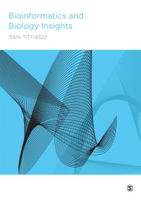
Bioinformatics and Biology Insights
Fostering collaboration at the forefront of biological research.Bioinformatics and Biology Insights is a premier open-access journal dedicated to advancing the frontiers of bioinformatics and biology. Published by SAGE Publications Ltd, this journal is a leading platform for disseminating high-quality research that integrates computational methods with biological insights. Since its inception in 2007, the journal has garnered significant recognition, reflecting its commitment to excellence, as evidenced by its impressive impact factor and a strong presence across multiple quartiles in applied mathematics, biochemistry, and computational sciences. With a rank of Q1 in both Applied Mathematics and Computational Mathematics and various other notable rankings in related fields, it serves as an essential resource for researchers, professionals, and students seeking cutting-edge knowledge and innovations. The journal's open-access model ensures that findings are readily available, fostering collaboration and advancement in this dynamic field. Through its comprehensive scope and rigorous peer-review process, Bioinformatics and Biology Insights continues to play a pivotal role in shaping the future of biological research and computational methodologies.
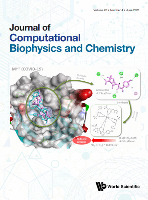
Journal of Computational Biophysics and Chemistry
Advancing the Frontiers of Biophysics and ChemistryThe Journal of Computational Biophysics and Chemistry, published by World Scientific Publishing Co. Pte Ltd, is a distinguished platform dedicated to advancing the fields of biophysics and computational chemistry. With an ISSN of 2737-4165 and an E-ISSN of 2737-4173, this journal has garnered attention since its inception, earning a Q3 ranking in Computational Theory and Mathematics and Q4 rankings in both Computer Science Applications and Physical and Theoretical Chemistry as of 2023. The scope of the journal encompasses innovative research that integrates computational techniques with biochemical applications, making it essential reading for researchers, professionals, and students alike. With open access options available, the journal ensures that cutting-edge findings are easily accessible to a global audience, thereby fostering collaboration and innovation in the scientific community. Based in Singapore, the journal aims to converge ideas and methodologies from 2021 to 2024, paving the way for transformative insights in computational methods. Join a community at the forefront of research and applications that bridge disciplines through rigorous scholarship and pioneering discoveries.
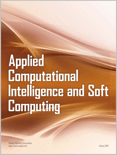
Applied Computational Intelligence and Soft Computing
Transforming Ideas into Intelligent SolutionsApplied Computational Intelligence and Soft Computing, published by HINDAWI LTD, is a premier open access journal that has been disseminating critical research since 2009, focusing on the intersection of artificial intelligence and soft computing. With an impressive array of quartile rankings in 2023, including Q2 in Civil and Structural Engineering and Computational Mechanics, this journal has established itself as a significant contributor to the fields of computer science and engineering. Based in Egypt, it plays a vital role in advancing knowledge by providing researchers, professionals, and students with easy access to high-quality studies. The journal’s rigorous peer-review process ensures that only the most impactful research is highlighted, making it an essential resource for those looking to stay abreast of the latest innovations and methodological advancements in applied computational intelligence. Its Scopus rankings further affirm its influence and reputation within the academic community, exemplifying its commitment to facilitating collaboration and fostering intellectual discourse in various scientific domains.
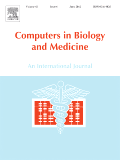
COMPUTERS IN BIOLOGY AND MEDICINE
Advancing the Fusion of Technology and HealthcareCOMPUTERS IN BIOLOGY AND MEDICINE is a prestigious academic journal published by Pergamon-Elsevier Science Ltd, dedicated to advancing the fields of Computer Science Applications and Health Informatics. With an impressive impact factor and ranking within the Q1 quartile for both categories, this journal plays a crucial role in disseminating high-quality research findings that influence cutting-edge developments at the intersection of computing and healthcare. Covering a broad range of topics from computational biology to medical informatics, it serves as a vital resource for researchers, professionals, and students striving to harness technology for medical advancements. The journal has been publishing since 1970 and continues to evolve, incorporating the latest trends and innovations in the field, thereby ensuring that it remains a key contributor to scientific inquiry and knowledge. With accessible content and a global reach, COMPUTERS IN BIOLOGY AND MEDICINE invites submissions that elevate the understanding and application of computational methods in biological and medical contexts.
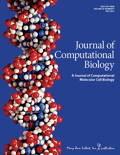
JOURNAL OF COMPUTATIONAL BIOLOGY
Advancing the Frontiers of Biology through ComputationJOURNAL OF COMPUTATIONAL BIOLOGY, published by Mary Ann Liebert, Inc., serves as a premier platform for the dissemination of groundbreaking research at the intersection of biological sciences and computational methods. Established in 1994, this journal provides a valuable resource for researchers, professionals, and students interested in the evolving fields of computational mathematics and biology. With a commendable Q2 ranking in several pertinent categories such as Computational Mathematics and Modeling and Simulation, it emphasizes high-quality studies that propel understanding and innovation in these areas. Although the journal currently operates under traditional access options, it plays a crucial role in fostering scholarly communication and collaboration among a diverse audience, advancing knowledge in genetics, molecular biology, and beyond. The journal's continual evolution, with a commitment to publish until at least 2024, positions it as a critical resource in the fast-paced world of computational biology.
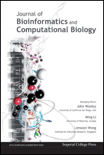
Journal of Bioinformatics and Computational Biology
Advancing the Frontiers of Bioinformatics and Computational BiologyThe Journal of Bioinformatics and Computational Biology, published by WORLD SCIENTIFIC PUBL CO PTE LTD, serves as a significant platform for disseminating innovative research in the dynamic fields of bioinformatics and computational biology. With an ISSN of 0219-7200 and an E-ISSN of 1757-6334, this journal facilitates the exchange of ideas and advancements from its inception in 2003 and continues to be pivotal through 2024. Despite its classification in the lower quartiles—Q4 in Biochemistry and Q4 in Molecular Biology, along with Q3 in Computer Science Applications—the journal remains a valuable resource for researchers and students alike, as it emphasizes interdisciplinary approaches essential for tackling complex biological problems through computational methods. Located in Singapore, the journal encourages submissions of high-quality, peer-reviewed articles that offer insights into computational techniques that empower biological research. Although this journal does not offer open access options, its contributions to research are increasingly recognized across various academic platforms. As the field evolves rapidly, this journal continues to attract a growing readership, making it an essential reference point for anyone interested in the intersection of biology and computer science.